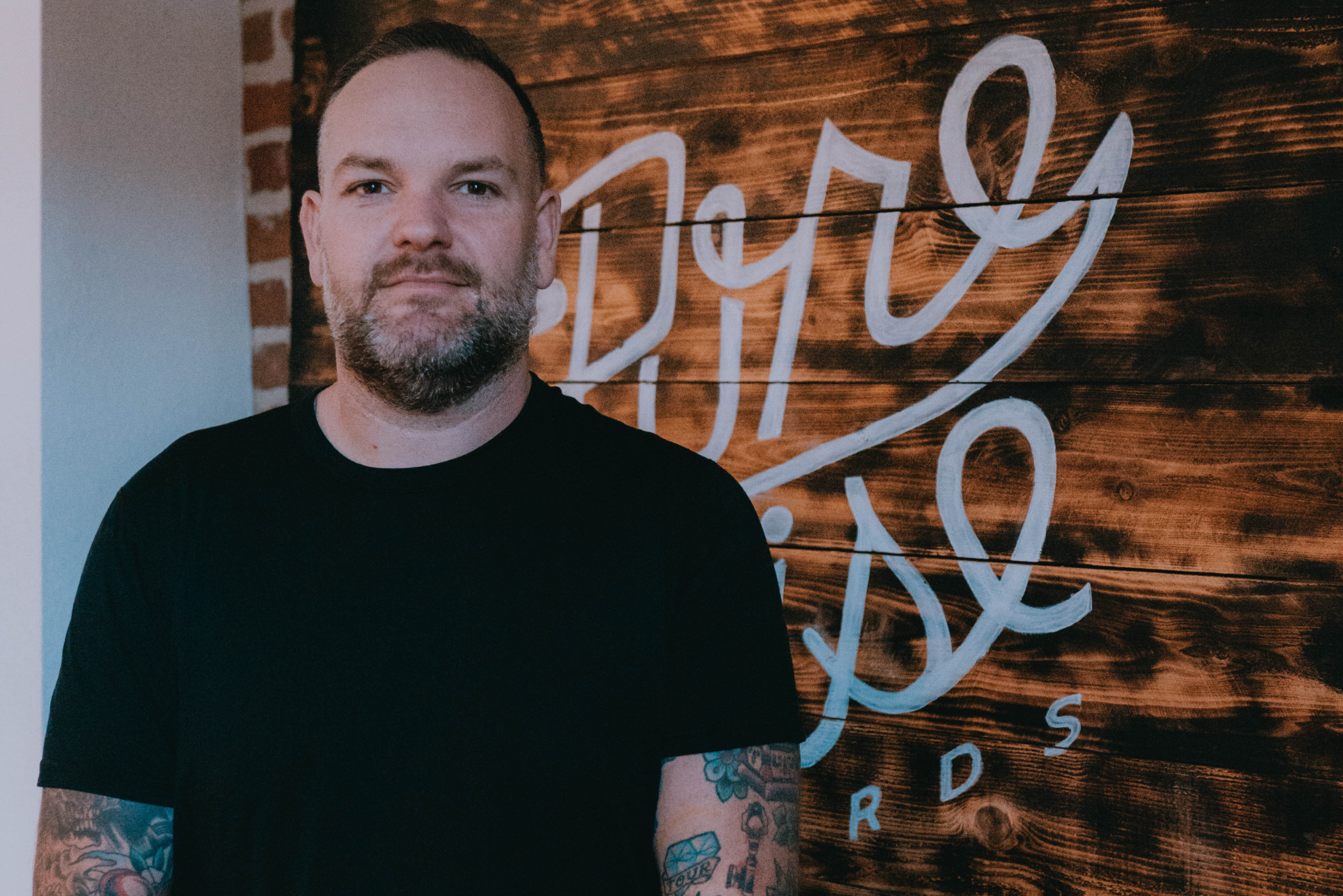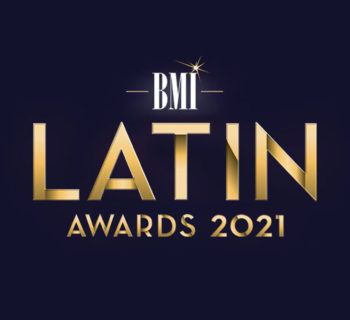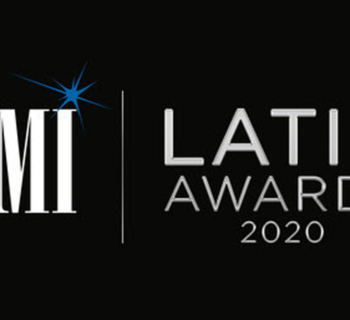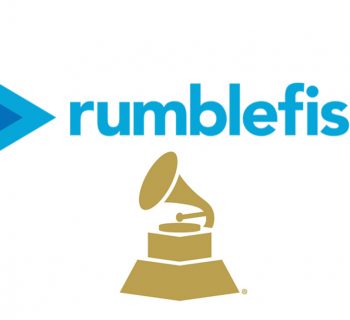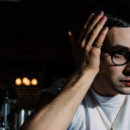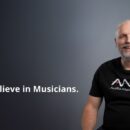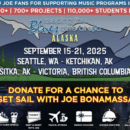Ten years ago Ozuna was an uncharted rapper simply known as J Oz. But today, he is the 26-year-old pop sensation who is being heralded as the “New King of Reggaeton.” Much like Pitbull during his prime, Ozuna’s songs have helped define a new generation of urban music for Latinos all over the world. The young songwriter attributes his chart-topping success to his artistic intuition, an inclination for which he claims is his natural ability to gauge the potential of a hit song just moments after hearing a track for the first time.
In fact, during our interview, the Puerto Rico native confidently referenced his knack for writing a hit song by saying, “My gift is in the blood.” Perhaps those words are a symbolic gesture to all of the people he considers to be his family. Those individuals range from the music executives at Sony Latin to his best friend and recording engineer, Hi Music Hi Flow.
His “family” has provided him with a winning formula, a structure that has enabled him to topline mega-hits like “Taki Taki” (by DJ Snake) and “La Modelo” (featuring Cardi B). Ozuna’s bold proclamations were solidified in historic fashion, during 2019, when he swept the Latin Billboard Awards with 11 wins.
In our exclusive interview, we not only examine the evolution of Ozuna’s career, from rap music during the 2000's to becoming one of best-selling Latin singers of all time, but we prompt him to give us a behind-the-scenes look into his development as a businessperson and his growth as a recording artist.
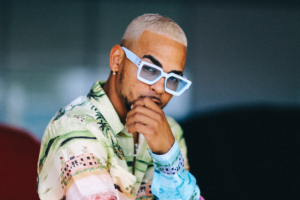
Music Connection: You released your first album (Odisea) with Sony Latin back in 2017. The title track is a heartfelt song in which you talk about experiencing poverty and violence during the 2000’s. Take us back to that time period for a second. As a musician, how did you navigate through those hardships while you were moving back and forth between New York and Puerto Rico? And who played the biggest role in helping you land your first record deal?
Ozuna: I come from a very hard-working family. I grew up mostly with my grandmother, and she was one of my biggest inspirations to follow my dreams. As a teenager I worked different jobs, while trying to make it in the music business. It was not an easy thing, but I never gave up. I landed my first distribution deal with Sony Music Latin through a joint venture with Dimelo Vi, an independent record label [based in Puerto Rico] owned by former manager at the time, Vicente Saavedra. Today, I have my own record label, Aura Music, under which I keep a distribution deal with Sony Music Latin. They are not only a business partner––I consider the Sony team my family.
MC: When your career began, you released quite a few rap songs. Since then, you have gradually transitioned to the point where most of your songs feature you as a pop singer. What inspired the change in your artistry? And who has been most instrumental in the development of your vocal range?
Ozuna: I’m a big fan of music in general. I grew up listening to a variety of music genres, Latin, hip-hop, r&b etc. So, I’ve tried almost all [types of music]. That’s why, even though today most of my songs are based on reggaeton, I continue developing and evolving my style. In my work, you’ll find a lot of fusion of Latin rhythms with other genres. As for my vocal range, it is also something that I basically developed myself throughout the years, with a lot of practice.
MC: Much like yourself, the Black Eyed Peas have also become renowned for their genre bending collaborations. Tell us about your collaboration with the Black Eyed Peas for “Mamacita.” How did you guys link up for this song?
Ozuna: The first time I heard this song, I said, “Yo, that’s a hit! Let’s do it right now, right now, right now!” I worked every day on this song. And after three or four days of work, I said, “You have the (music) video! You have everything! Go out please, Sony. Believe me and go out! I’m telling you that’s a hit!”
MC: The timing of this music video release caught our attention immediately, because it was launched on April 10th, which was not too long after the first Coronavirus shutdown began to take place in the United States. A majority of your scenes were obviously shot outdoors. Where did you guys manage to shoot this music video?
Ozuna: In Los Angeles, like about four or five days before the Coronavirus [lockdown].
MC: Speaking of the Coronavirus lockdown, the US leg of your headlining tour for Nibiru (released on Nov. 29, 2019) was set to begin on April 2 of this year. There were 19 shows planned throughout the country. But because of the global pandemic, your tour has been postponed. Are there any adjustments being discussed in order to salvage the tour and get you in front of your American fans at some point this year?
Ozuna: I’m so grateful for all the love and support I receive from my fans every day. I’m deeply saddened that we’ll have to reprogram the tour dates due to the COVID-19 pandemic. However, the health and safety of our people is of utmost priority right now. We are actively monitoring the current situation in order to be able to announce new dates as soon as possible, following all the required adjustments and necessary precautions.
MC: In the meantime, a lot of artists have turned to social media in order to live stream shows from the comfort of their homes. Have you considered putting on an Instagram Live show for your fans? Just to hold them over.
Ozuna: Right now, I won’t do it, because I need to see my people vibing at shows. I’m a different artist. I need the people. I need a vibe. I need the people who know my songs to be there. So, alone in my house? I would get a little bit of a vibe, but it’s not the same.
MC: In an interview with Billboard, you mentioned that you were hesitant to collaborate with DJ Snake when he first presented you with the track for “Taki Taki,” because you didn’t like the rhythm of the song. Obviously, you changed your mind and the song went on to become your most successful crossover hit featuring American recording artists. How do you usually determine if you are going to do a guest feature for another recording artist?
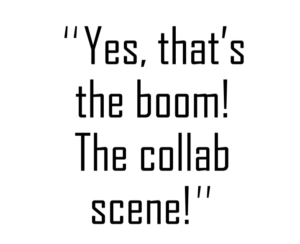
Ozuna: It’s a variety of factors. Most definitely, I should have some sort of connection with whomever I’m going to do a collaboration with. If the vibe is there, I’m in!
MC: You dropped your third album last year. Nibiru features more collaborations with (English-speaking) American recording artists than your last two albums combined. That’s a pretty significant change in direction. Does this mean that you’re thinking about releasing a full-fledged crossover album sometime soon?
Ozuna: Yes, that’s the boom! The collab scene! In December 2018, I put out “La Modelo” [with Cardi B]. “La Modelo” spent two years in the top 15 of the Apple Music [charts]. The collabs with the Latin and the American [artists] go hard!
For this album, I wanted to do the crossovers and go hard. But not only for my people in Latin music. I’ve worked the last three years for my people in Latin music. But this album is something different.
It’s also for the American culture…P. Diddy, Snoop Dogg and Swae Lee… They have a lot of streaming right now. The American [market] is bigger!
MC: Now that you’re making all of these crossover songs with so many English-speaking artists, what’s the reception been like from your friends and family back home in Puerto Rico? And what are the people saying about this change in direction?
Ozuna: The people wait…just like they did with [the invention of] reggaeton in Puerto Rico. But the people who have vision? They say: “Yo it’s hard!” Because day-by-day my music gets bigger. That’s because my music is for people all over the world. It’s not only for my Latin People.
MC: Latin Trap and reggaeton have practically eclipsed American rap music in terms of plays and streams, globally. Nevertheless, there is no denying the influence that American hip-hop culture has had on urban music all throughout Latin America. Even you yourself have mentioned that Travis Scott somewhat inspired the theme for your Nibiru album. What other rappers and singers from North America have given you inspiration lately?
Ozuna: Drake, Chris Brown, Justin Bieber, Rihanna, Usher…a lot of American people.
MC: That’s cool. Could you see yourself working with any of them in the future?
Ozuna: Yeah, whenever they have an opportunity—I’m ready to do it.
MC: Now that sounds like another record-breaking collaboration to me.
Ozuna: Yeah, I know (Laughs).
MC: You are going to make your big screen debut in the upcoming Fast and Furious 9 movie. Universal Studios recently pushed the release date back to April 2021. Can you tell us a little bit about the character that you are playing, and if will you be involved with the film’s soundtrack at all?
Ozuna: That’s a surprise, so I encourage everyone to go watch Fast and Furious 9 as soon as it comes out.
MC: Let’s talk about your music videos, because when it comes to the iconic reggaeton artists from Puerto Rico such as yourself, Bad Bunny and Daddy Yankee, we noticed that you tend to release music videos that are very colorful and expressive. There’s always so much culture and creativity. Which is probably a big reason why each of you have released multiple music videos that have garnered over one billion views on YouTube. What’s the secret behind making a successful music video in reggaeton?
Ozuna: I believe it is a combination of the song and the video creative process. That’s why it is important that the director, production and creative teams have a good understanding of the artist’s ideas and concepts, and work in the process together to keep making unique and innovative music videos for people to enjoy.
MC: When I first started listening to reggaeton I kept on hearing about a production duo from the Dominican Republic called Luny Tunes. They’ve become legends. Were you ever influenced by the sound that these guys curated during the 2000s?
Ozuna: Yes, they influenced everybody in reggaeton. Luny Tunes were the first guys, for me and my generation, that made the hard reggaeton! Everybody in Puerto Rico and Latin people all over the world knows about Luny Tunes––because they recognize the bass!
MC: A lot of people don’t know this, but when your career began during the late 2000’s, you experimented with rap music pretty heavily. Back then, you went by the name of J Oz. But shortly thereafter that you changed your stage name to your family surname––Ozuna. Why was it important for you to make that change?
Ozuna: It was just a decision I made at an early stage of the development of my music career. It was a point in time when I was trying to reinvent myself as an artist. I felt that my last name was simpler and more meaningful to me.
MC: How do you manage to satisfy your day-one rap fans, the hardcore supporters who probably didn’t want to see you make the transition to full-time singer?
Ozuna: It’s different. Because in Puerto Rico you have different corners (of music). You have your rap fans, you have your commercial fans and you have your Dancehall fans. You need to go to every corner. That’s what I think. You need versatility.
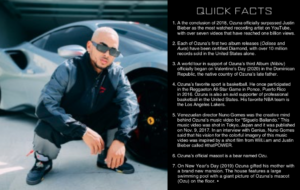
MC: We noticed that you like to give a shout out to your vocal producer, Hi Music Hi Flow, in a lot of your songs. He has obviously played a major role in your career. What is your working relationship like with him right now?
Ozuna: That’s my brother! That’s the first guy that mixed my songs. Hi Flow engineers every song of mine. He’s an engineer for the people. He’s not only with me at the [recording] studio, he’s with me on the stage too. He’s my brother. Over time, he has become my family, because he is with me every day. I help him and he helps me.
MC: Speaking of mixing and engineering sessions, with all of the down time that touring artists like yourself have had lately, due to the Coronavirus lockdowns, have you had extra time to start working on a fourth album?
Ozuna: Yeah, right now I am working on a fourth album. I don’t have a month or day [for its release], but it will go out this year. I am working with the producers, and the next step will be the collaborations. My Latin people have been saying, “Come out with new music. I need music!” So I’m going to release new music for my Latin people.


